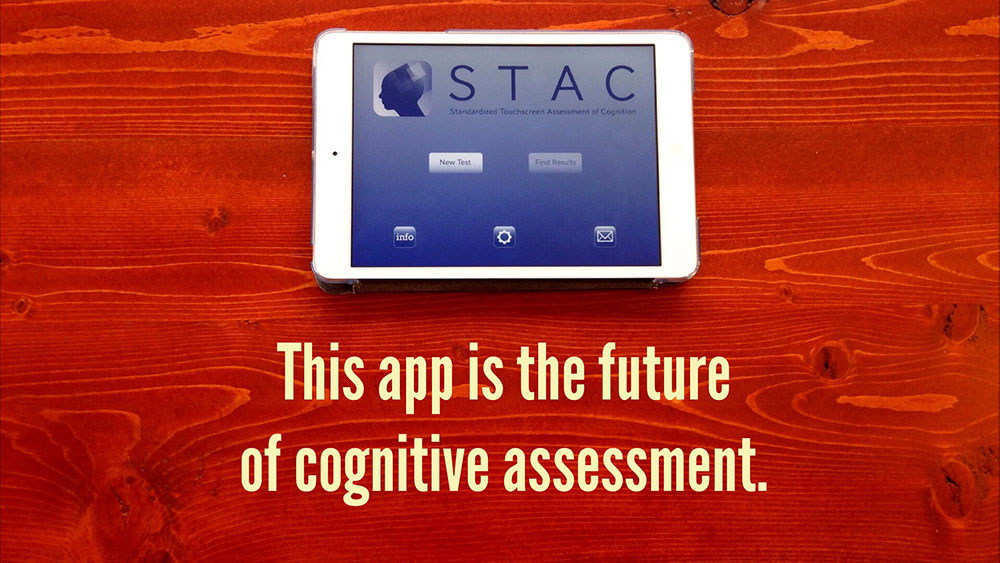
I have seen the future (of cognitive assessment)…and I feel relieved. Finally, there is an option that controls for my own errors and biases, generates detailed reports, and gives cognitive assessment the thoroughness your patients deserve.
Cognitive Innovations released STAC (Standardized Touchscreen Assessment of Cognition) in January of 2014. Version 2.0 just came out today. I came across STAC on Linked In and instantly liked the concept. I contacted Simon, one of the co-creators, for a trial. The assessment surpassed my expectations.
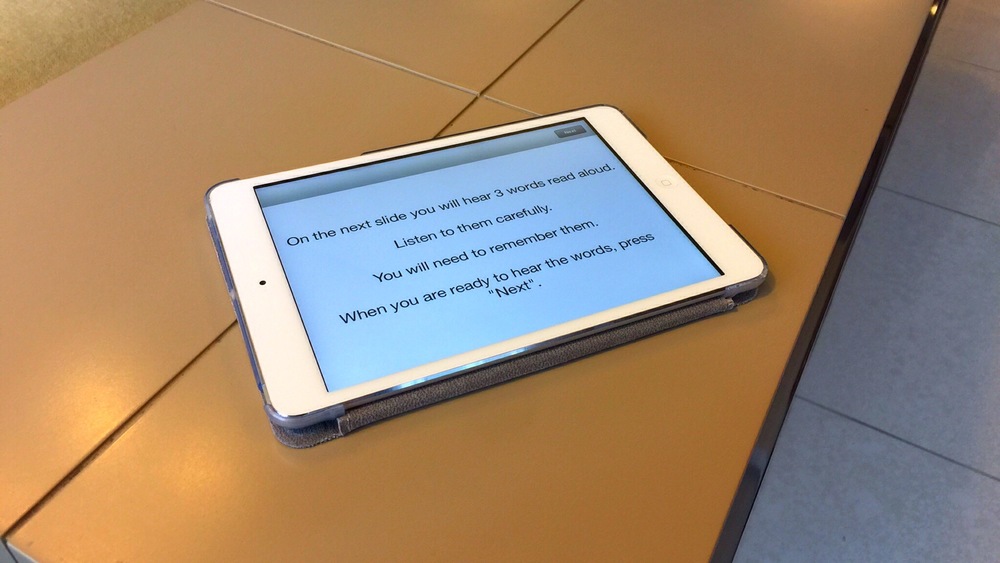
The Basics of the STAC App
The assessment has 12 subtests that test 6 major areas of cognition:
- attention
- memory
- sequencing
- visual scanning and attention
- executive function
- processing speed and components of language.
If you’ve done cognitive assessments before, the subtests will likely feel familiar to you. It took me 14 minutes to take the full assessment. Your client should be able to complete the whole assessment independently as the app gives prompts through each subtest.
The best part is that at the end of the assessment a detailed report is generated that can added to the patient’s file.
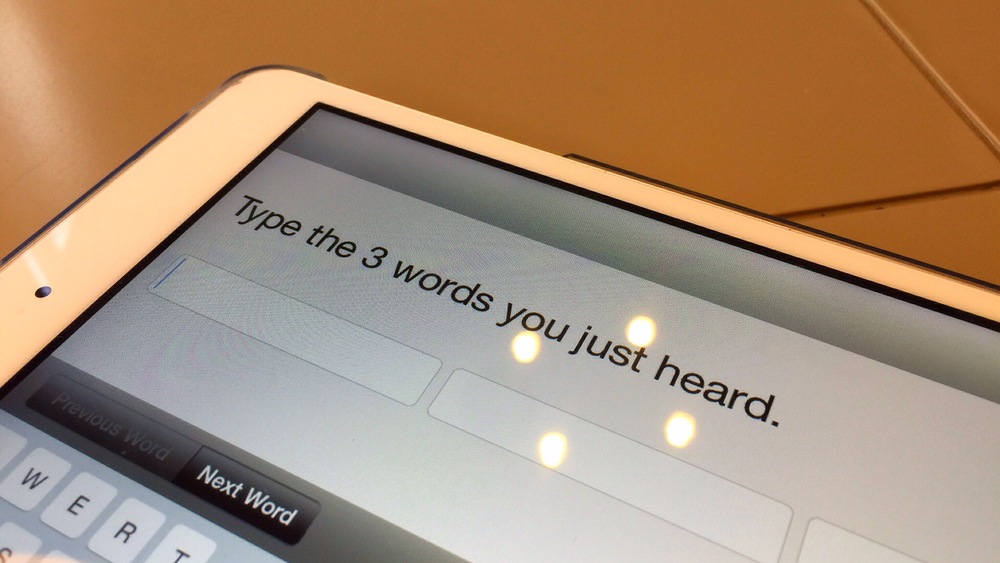
Why it’s good for your clients
If you’re like me, you’ve had one too many incidents where you’ve lost track of time during the timed components… or forgotten whether they had already said “rabbit” in their list of animals… or simply failed to fully capture everything you’ve observed in your documentation.
Cognitive assessments typically play a major role in level of care recommended at discharge and gauging a person’s ability to participate in the therapy. The gravity of these circumstances calls for quality assessments, free of human error and bias.
In my opinion, all patients deserve this top of the line kind of assessment.
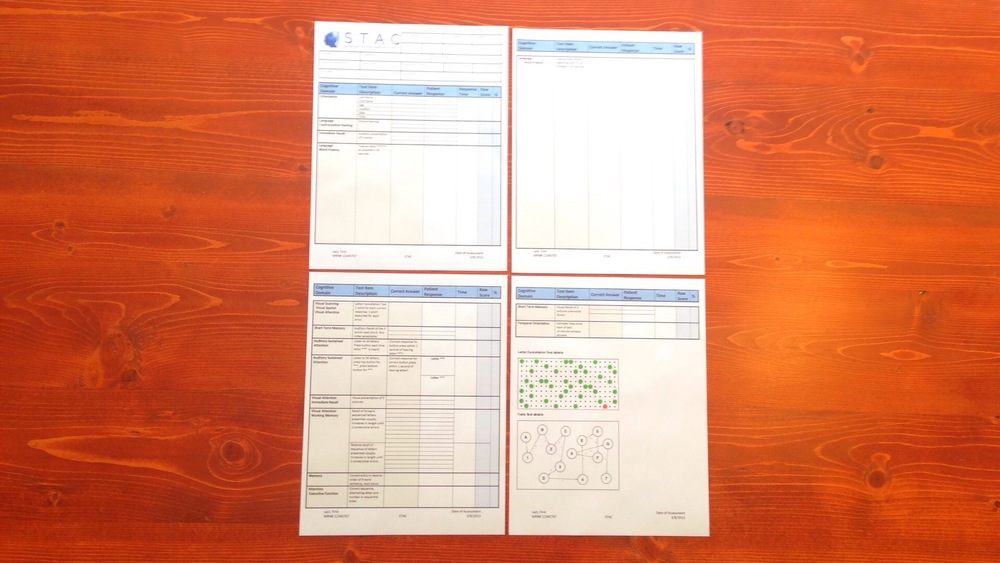
How it helps you fully utilize your therapy skills
I cannot emphasize enough how much more objective the information is that you receive in the report compared to other assessments that I have tried. For each subtest, you can see how much time the client spent working on it, their raw score, and how they compare to a normative group of a similar demographic.
The information allows you to not only give specific documentation, but to also plan treatments based around discrete components of cognition.
I’m embarrassed by the times I’ve made major recommendations for someone’s life based around a composite score from a subpar assessment. For me, there will be no going back to this.
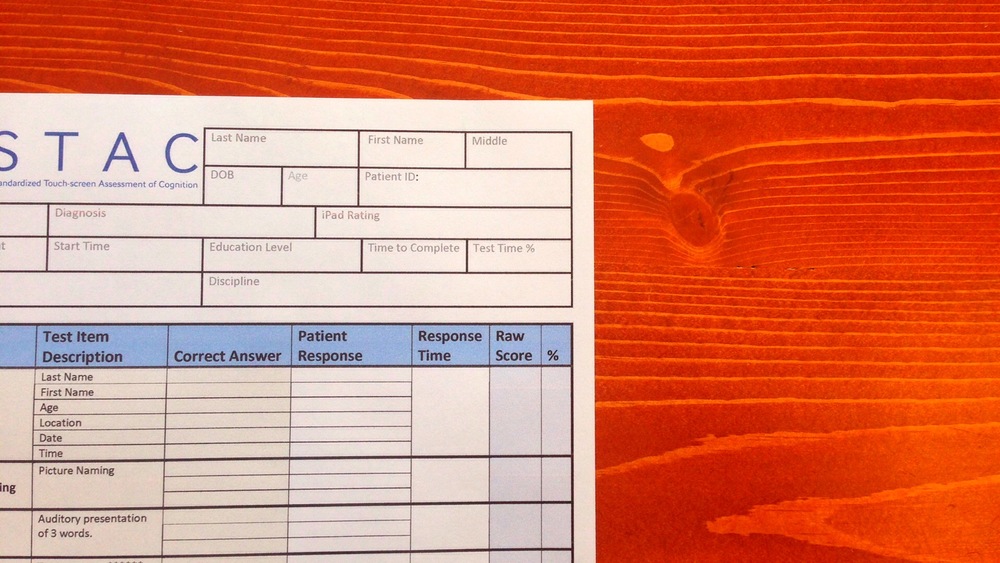
How it compares
You can get the Mini Mental Standard Version Kit for $155.
The Allen’s Cognitive Level Screen with Manual is $242.99.
Enough said.
An Interview with one of STAC’s creators

This app was created by an SLP and an OT, both with an extensive history of working in cognitive rehabilitation. After using the app for the first time, I had several questions for the creators. I was able to catch up with Simon OT/L, MBA just before STAC Version 2.0 launched. Here is part of our conversation:
Potential: The updated version was just released in the App Store. What does this version all entail? How will it affect people who have already purchased the app?
Simon: We are very excited about our latest update to STAC. Version 2.0 offers a full second assessment that will allow therapists to administer the assessment twice to the same person. This is extremely valuable, as it reduces practice effect, thereby making the results much more reliable. A second version was the number one request we received since first launching STAC in 2014. Many clinicians wanted to assess their patients/clients pre and post intervention to measure change in cognitive functioning. Now that STAC has a version A and B, this is possible.
What are some of my options for billing for this assessment?
Occupational therapists can bill for the time spent administering STAC during an evaluation. STAC provides valuable information to the clinician that should be included in the more thorough evaluation.
Can you explain the in-app purchases to me?
For clinicians who are interested in trying STAC without buying the ‘unlimited’ version, we do offer bundles of runs at a lower cost. Downloading STAC (not STAC Unlimited) from the app store is free of charge, and then uses the in-app purchase process for obtaining test runs.
How are iPads used in your own clinical setting?
iPads are becoming more and more valuable and prevalent in clinical settings. iPads offer a wide range of benefit including: patient education, video recording of performance for review, use of therapy apps such as fine motor/coordination/cognitive skill development and relaxation/mindfulness training. At a recent conference, I was approached by countless therapists who reported that their companies were purchasing iPads for their clinics.
Where does Cognitive Innovations hope to go from here?
Cognitive Innovations remains very active, working to roll out improvements in cognitive assessments for clinicians. We are working with a reputable university on a validation study, with preliminary results that are very very promising. We are also in the development phase of a completely new cognitive assessment tool that we think will change the landscape of how cognition is assessed in a clinical environment! While I can’t comment in detail on this tool, I would encourage interested readers to follow us to stay current on developments. We expect the next assessment to launch in early 2016.
You can follow STAC on Twitter and Facebook.
For a full tour of the app, check out this video.
For the first month after release the app will be on sale for $24.99! Now is a great time to step into the future!

One reply on “STAC: Cognitive Assessment App for the iPad”
Wish there was more standardized assessment apps to use. So far I have only found this one (STAC), DASH (Disabilities of the Arm, Shoulder and Hand) Outcome Measure, and Barthel Index by Inneva.